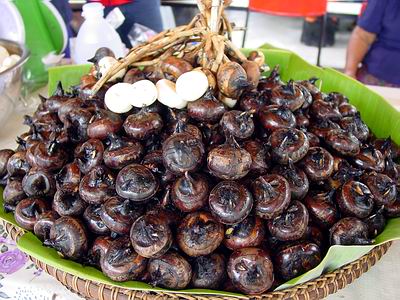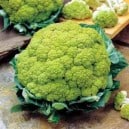Chard, also known by the common names Swiss chard,silverbeet, perpetual spinach, spinach beet, crab beet,seakale beet, and mangold, is a leafy vegetable, and is one of the cultivated descendants of the sea beet, Beta vulgaris subsp.maritima. Although the leaves are eaten, it is in the same species as beetroot (garden beet), which is usually grown primarily for its edible roots.
Chard is a relative of beets, and the leaves of the two plants look very similar. Chard, however, has been bred to have highly nutritious and flavorful leaves at the expense of the root, which is not edible. The most common chard under cultivation is Swiss chard, which has brilliant green leaves and bright white or colored stalks. Chard is also related to spinach and has a slightly bitter, salty flavor popular among some consumers.
Health Benefits of Chard
- The riboflavin present in Swiss chard is a very important co-factor in the regeneration of one of the most important antioxidants in the body, glutathione. A major effect of glutathione is that it defends certain lipids, like cholesterol, from free radical attack. It is only after the lipid has been attacked by the radicals that it poses a threat to blood vessel walls.
- Another effect of riboflavin is that it aids in the proper functioning of Vitamin B6 in the body. Vitamin B6, on the other hand, is necessary for the conversion of homocysteine (a potentially dangerous molecule) into the amino acid, methionine. This is done through an intense cellular process called methylation. Riboflavin acts as a catalyst in this process.
- A single cup of Swiss chards supplies about 14.7% of the daily fiber requirement of the human body. Regular fiber intake is associated with the reduction in high cholesterol levels and the subsequent prevention of atherosclerosis. It also helps maintain the normal blood sugar levels in the body and is therefore, excellent for the people with diabetes.
- Prevention of colon cancer is yet another beneficial effect of the fiber containing Swiss chards.
- Chards serve as an excellent source of vitamin A and are therefore, very beneficial for proper optic function.
- Research has indicated that regular consumption of the vitamin Beta carotene, which is present in Swiss chards, helps prevent certain forms of cancer and also protects cells from oxygen-based damage.
- In case you are a regular smoker or are frequently exposed to secondhand smoke, be sure to incorporate lots of vitamin A-rich Swiss chards in your daily diet. This is due to the fact that vitamin A helps counteract the harmful effects of the carcinogen, benzo(a)pyrene, present in cigarette smoke. Subsequently, it prevents the occurrence of lung inflammation and emphysema.
- As a natural calcium blocker, the magnesium present in chards prevents the rush of calcium into nerve cells and thus, the activation of the nerve as well. Thus, it helps keep the nerves relaxed. Over-activation of these cells leads to excessive contraction, resulting in conditions like muscle cramps, soreness, fatigue, high blood pressure, migraines and muscle spasms.
- Magnesium as well as calcium, both of which are there in chards, is necessary for healthy bones. They also contribute to the maintenance of their natural physical structure.
- Swiss chards also serve as a good source of the mineral, iron. This mineral combines with protein to form the oxygen carrying molecule, hemoglobin. Thus, chards contribute to the maintenance of a healthy immune system and help the body generate energy.

